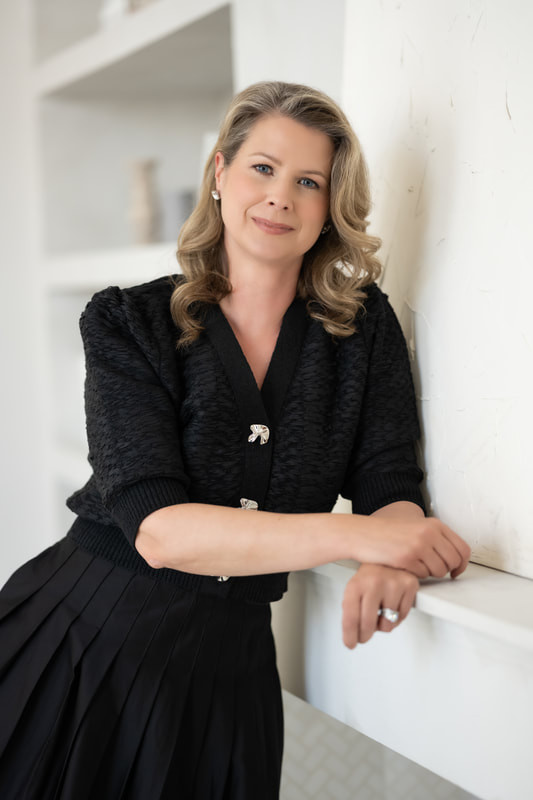 Starting your own legal practice, or business, can be overwhelming and terrifying. Some lawyers who branch out on their own are able to bring clients (or a full practice) with them from an old firm. Most of us are not that lucky. I started my own freelance lawyer practice, Cowling Legal Freelance, in 2013 from scratch. Through this I have learned several important lessons about building a legal practice and business. One of those lessons: Always say “Yes”...... until it is time to say “No”. WHEN TO SAY YES Unless you are independently wealthy, starting a legal practice with little or no clients means you have to say “yes” to files that show up, even if they may not excite you. Often people refer to this as practicing “Door Law” – your practice consists of whatever comes in the door. If you have a mortgage to pay and mouths to feed, saying "yes" is necessary. Obviously, you should only take on files that you are competent to handle, but use this as an opportunity to try new things and expand your skills. This is actually an exciting time! You may take on a file in an area that you never thought you would be interested in and discover you love it. I learned lots by saying "yes" in the early years of my own practice. One firm asked if I would do a flat fee project. I had never done one before as a freelance lawyer, but I said "yes" anyway. I quickly learned that I had severely underestimated and undervalued my time - a mistake I never made again. But, I now know how to flat fee out projects better and have a new service to offer my clients. I never would have learned this if I said "no". In the beginning I also said "yes" to things that took me well outside of my comfort zone or were a lot of hard work for little or no monetary reward. But, those opportunities turned into more opportunities and helped build my practice. For example, I answered "yes" when asked to write articles for legal publications and lawyer associations. Even though they didn't pay, and it takes a lot of time and hard work to write an article, it was a great way to get my name out there without having to pay advertising fees (low on clients, means low on cash). It was the same with volunteering for legal organizations. Saying "yes" to help organize a CLE event (not easy work), led to me being asked (and saying "yes") to speaking at a different legal event. A few lawyers saw me speak and sent work my way. Meeting the Dean of the University of Ottawa Faculty of Law over Twitter (through tweeting some of those time-consuming articles I wrote) and saying "yes" to having coffee with him, eventually led to my part-time position as Regional Alumni Advisor. This are just some examples. It can be scary stepping into new situations and trying new things – but just saying "yes" can open up so many opportunities and, in turn, build your practice. Saying "yes" meant I was trying new things, meeting new people and going to new places. It was so much fun saying "yes"....until it was time to..... SAY NO What is the downside to learning to say "yes" to everything? You get good at it. You get into a habit of automatically saying "yes". You want to have a coffee to pick my brain and expect me to travel 40 minutes to you in the middle of the day? Volunteer hours of my time in an area of law I am not really interested in? Write an article for a publication that has readers who would never use my services? Decrease my billable rate and put up with your abusive emails because you promise me lots of work? ....ummm what?! It really sounds silly to say "yes" to these suggestions, but once you get used to saying "yes" to build your practice, it can be hard to shake the habit. It makes sense to say "yes" when you start out because you have more time (all you have is time, when you have no clients!) but that changes once your practice is up and running and time becomes a precious commodity. Sometimes, even though you now have a steady flow of work coming in the door, you have files that excite you, and you've built a solid brand, as a business owner you still can't help but worry that the files will stop coming. Or, the writing opportunities will dry up. Or, the speaking opportunities will disappear. So you keep saying "yes" to everything even though you should be saying "no" to some things. Last December I felt the beginning of burnout creeping into my life. I had the constant feeling like I was holding my breath all day, waking up panicking at 3 a.m. convinced I missed a deadline, stress-eating (chips for breakfast? Why not?), I was irritable, cranky, tired…I knew something had to change. I was doing too much. So I decided 2019 was "My Year of Saying No”. Not with the intention of saying “no” to everything, but just to be more strategic with my use of "yes". The response to "My Year of Saying No" has been great. Most people have understood and respected my decision. Often it's not a straight out no (although sometimes it is, especially with difficult clients), but more of a "not right now". I ask that they check in again next year or I make a note to follow up when it is a better time for me to consider the opportunity. It hasn't been easy, but life is much more manageable. For those of you who are like me, and find it hard to say "no", here are some things to consider: Is that client questioning your hourly rate at the beginning of the relationship? Is she not respecting your time and calling you 15 times a day before she has even signed your retainer? These are red flags of a difficult client. It is okay to say “no” to clients like this. If someone wants to have a coffee with you to "pick your brain", it's okay to ask them to come to you. It's okay to limit it to 15-30 minutes. It's okay to even say "Sorry, I am tied up for the next little while, can you check in with me in a month or two?" You've been asked to write an article. Is it for a publication that your clients or referral sources read? Is it on a topic that interests you? Or, will it be a pain to write? Will you have time to write it during your workday? Or, will you spend your family time or "me-time" writing it? It's okay to say "no" if the publication is not a good fit, or suggest another topic, or ask if it can be published in the next issue if the timing does not work. If you are asked to speak at a conference, is it paid? Who is the audience? Will it benefit your practice? Will they cover expenses (travel, etc.)? Do you have to write a lengthy paper? It can be flattering to be asked to speak, but if there are only a few "pros" and lots of "cons" it might just be a waste of your time and energy. Building your practice, or keeping your practice busy, is an on-going endeavour and it can never stop. So, it is good to keep taking on clients, keep writing, keep speaking, keep networking, etc. BUT once your practice grows and your time shrinks, you must be more selective in what you say "yes" to...Otherwise burnout may be around the corner.
8 Comments
|
Erin C. Cowling is a former freelance lawyer, entrepreneur, business and career consultant, speaker, writer and CEO and Founder of Flex Legal Network Inc., a network of freelance lawyers.
Categories
All
Archives
December 2022
|
|
(C) 2014-2024 Cowling Legal. All rights reserved.
|
Please note I am not currently practicing law.
Information on this website does not constitute legal advice and is for informational purposes only. Accessing or using this website does not create a solicitor-client relationship. See website Terms of Use/Privacy Policy. info@cowlinglegal.com
3080 Yonge Street, Suite 6060 Toronto,ON M4N 3N1 (appointment only) |






 RSS Feed
RSS Feed
